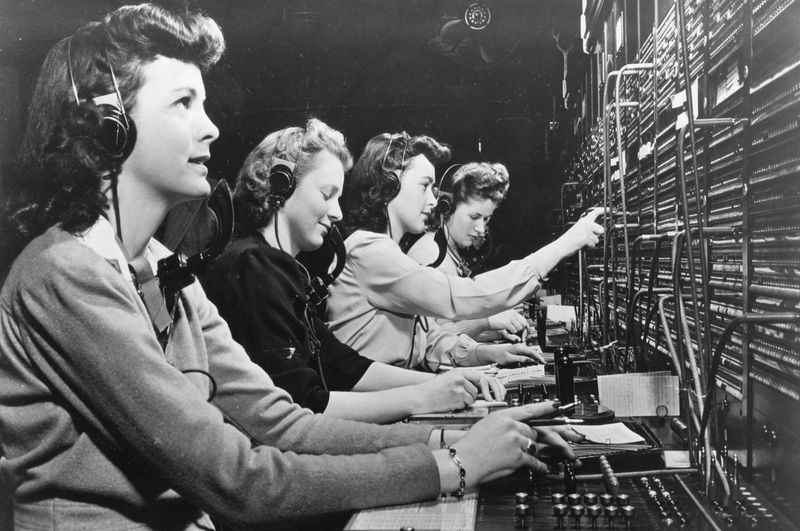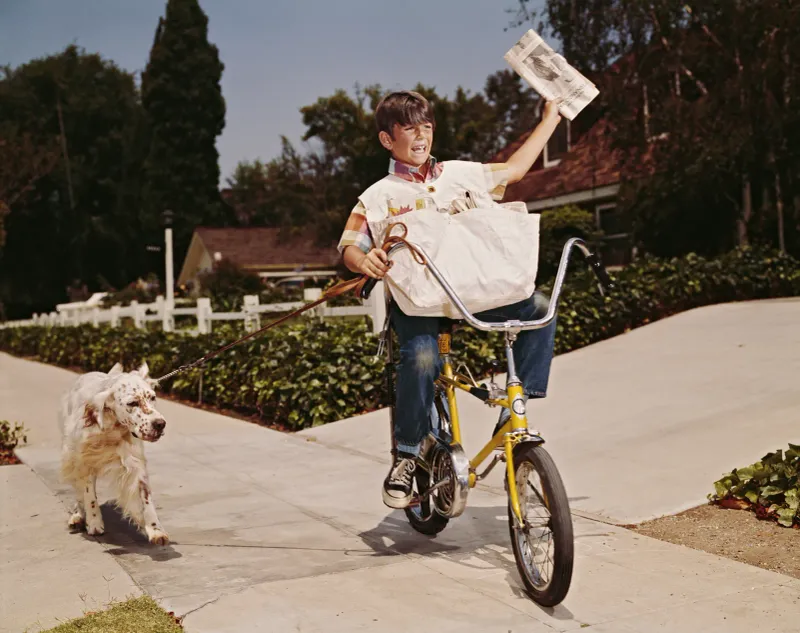In the rapidly evolving landscape of work, technological advancements and societal changes are rendering certain jobs obsolete. As industries adapt to new demands and capabilities, some traditional roles are being replaced by modern alternatives that promise increased efficiency and innovation.
This transformation is not just a reflection of technological progress but also an indication of shifting economic priorities and consumer preferences. While it may be daunting to see familiar professions fade away, the emergence of new career opportunities offers avenues for growth and adaptation. Embracing these changes can lead to a more dynamic and resilient workforce, equipped to meet the challenges of the future.
1. Travel Agent

Traditional travel agents are seeing their roles diminish as online booking platforms become more sophisticated. With just a few clicks, travelers can now customize and book entire vacations from their smartphones. The convenience and accessibility of these platforms make them an attractive option, leaving travel agents to focus on niche markets or luxury travel. However, opportunities still exist for those who specialize in personalized service and unique travel experiences. By leveraging technology and offering tailored advice, former travel agents can transition into roles as travel consultants, providing value that online platforms might miss.
2. Cashier

As self-checkout machines and automated payment systems become more prevalent, the role of traditional cashiers is fading. These technologies offer speed and efficiency, cutting down on long lines and reducing the need for human staff. While it spells change for cashiers, it opens doors for roles in customer assistance and tech maintenance. Those displaced by automation can enhance their skills to manage these systems, ensuring smooth operations and customer satisfaction. Embracing this shift can lead to new opportunities in the evolving retail landscape, where human interaction is still valued.
3. Typist

The demand for typists has dwindled with the advent of advanced word processing and voice-to-text technologies. These innovations allow for quicker and more efficient document creation, making traditional typing skills less essential. However, individuals with a keen eye for detail can transition into roles in editing and content creation. By adapting to new technologies, former typists can leverage their skills in accuracy and grammar to excel in digital content production. This shift highlights the importance of embracing change and enhancing one’s technological proficiency.
4. Switchboard Operator

The days of manually connecting phone calls through a switchboard are long gone, replaced by sophisticated digital communication systems. Modern call centers now utilize software that automates call routing, reducing the need for human operators. However, former switchboard operators can find new opportunities in customer service roles within these centers. By upskilling in digital communication tools, they can assist in managing customer inquiries more effectively. This transition underscores the necessity for workers to adapt to technological advancements in the communication industry.
5. Factory Assembler

The role of factory assemblers is changing as automation and robotics take over repetitive tasks. While this reduces the need for manual labor, it also creates opportunities for workers to supervise and maintain these machines. By acquiring skills in robotics and automation, former assemblers can transition into roles that focus on ensuring operational efficiency and quality control. This shift emphasizes the need for continuous learning and adaptability in the manufacturing sector, where technological innovation drives productivity.
6. Newspaper Delivery Person

The decline of print media has significantly impacted newspaper delivery roles, as more people turn to digital platforms for news consumption. However, the skills of reliability and punctuality that delivery persons possess are transferable to courier and logistics roles. Embracing the digital shift, they can explore opportunities in companies that focus on e-commerce deliveries. By adapting to the changing landscape, former delivery persons can find new career paths that leverage their strengths in time management and customer service.
7. Postal Worker

The traditional role of postal workers is evolving as digital communication and automated delivery systems become more prevalent. While mail sorting and delivery are being automated, opportunities arise in managing and maintaining these new systems. Former postal workers can transition into logistics and supply chain roles, leveraging their experience in delivery operations. By embracing technology, they can contribute to the efficient flow of goods and information, ensuring that postal services remain relevant in a digital age. This shift highlights the importance of adaptability in the workforce.
8. Telemarketer

The decline of traditional telemarketing is due to the rise of AI-powered chatbots and automated marketing systems. These technologies offer personalized and non-intrusive ways to reach potential customers, reducing the need for human telemarketers. However, those with sales skills can pivot to roles in digital marketing and customer relationship management. By learning to use digital tools and analytics, former telemarketers can enhance customer engagement and drive sales in new ways. This transition underscores the need for skill diversification in the sales industry.
9. Data Entry Clerk

The repetitive nature of data entry is being replaced by automated systems that handle large volumes of information with greater speed and accuracy. While this reduces the demand for traditional data entry clerks, it opens opportunities in data analysis and management. By developing analytical skills and understanding data-centric tools, former clerks can transition into roles that interpret and utilize data to drive business decisions. This shift emphasizes the importance of upskilling in a data-driven world, where insights and accuracy are paramount.
10. Bank Teller

As digital banking solutions and ATMs become more sophisticated, the role of bank tellers is diminishing. Customers now manage their finances through online platforms with ease. However, opportunities exist in customer service roles within banks, focusing on complex transactions and personalized financial advice. By adapting to digital tools, former tellers can enhance customer experiences and provide value beyond basic transactions. This transition highlights the evolving nature of the banking industry, where human expertise complements technological convenience.
11. Video Store Clerk

The decline of video rental stores is a result of the rise of streaming services that offer vast libraries of content at the click of a button. While this reduces the need for video store clerks, it creates opportunities in digital content curation and customer service within streaming platforms. By embracing digital media and understanding viewer preferences, former clerks can transition into roles that enhance user experience and content discovery. This shift highlights the importance of adapting to consumer trends in the entertainment industry.
12. Photo Lab Technician

The role of photo lab technicians is fading as digital photography and editing software become more accessible. People now edit and print photos from their devices, reducing the need for traditional lab services. However, opportunities exist in digital photo editing and graphic design, where creativity and technical skills are valuable. By embracing new tools and techniques, former technicians can enhance visual storytelling in various media. This transition emphasizes the continuous evolution of creative professions in the digital age.

Well, hello there!
My name is Jennifer. Besides being an orthodontist, I am a mother to 3 playful boys. In this motherhood journey, I can say I will never know everything. That’s why I always strive to read a lot, and that’s why I started writing about all the smithereens I came across so that you can have everything in one place! Enjoy and stay positive; you’ve got this!

